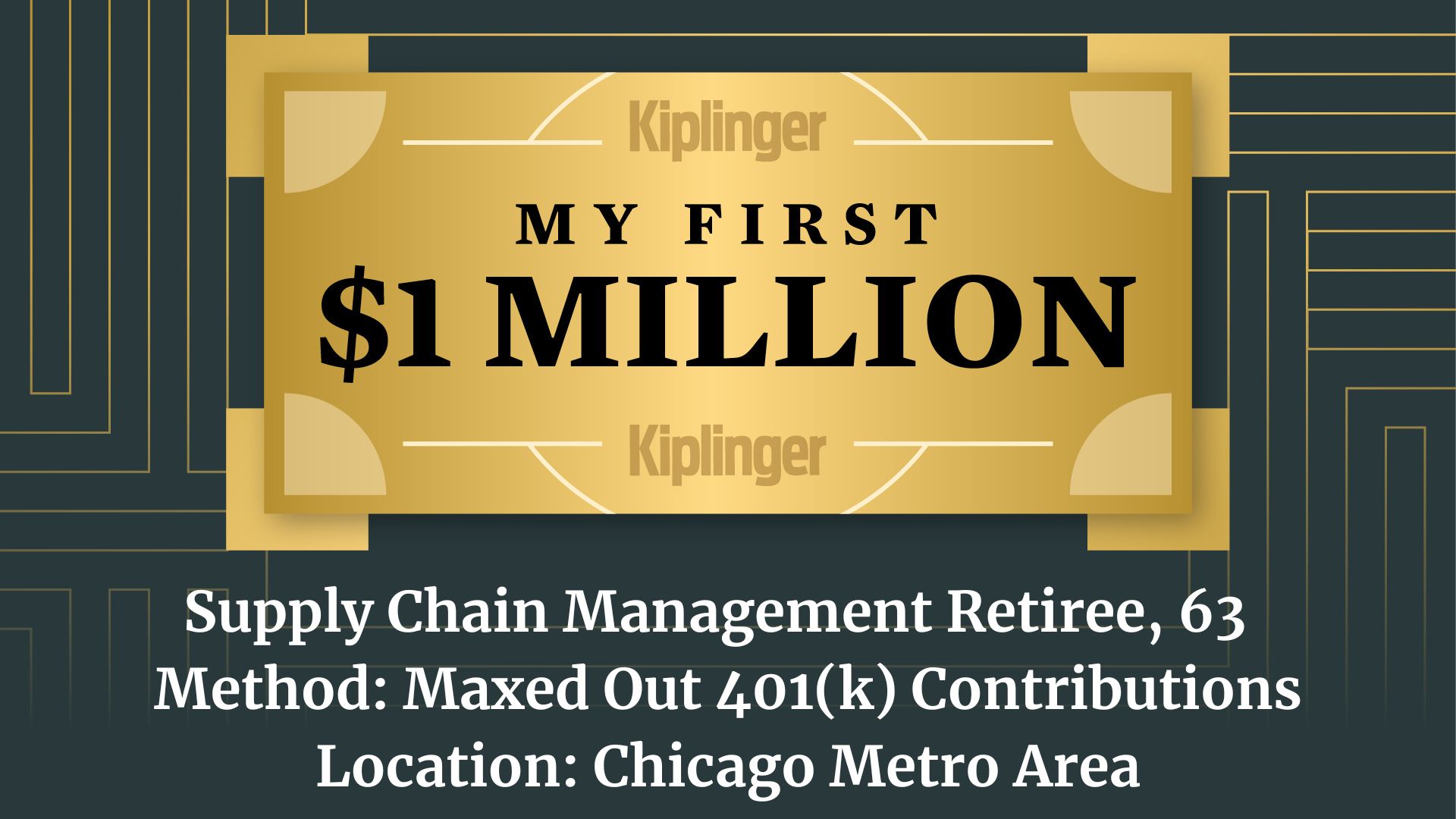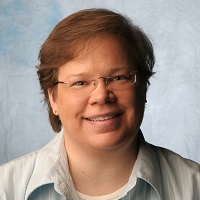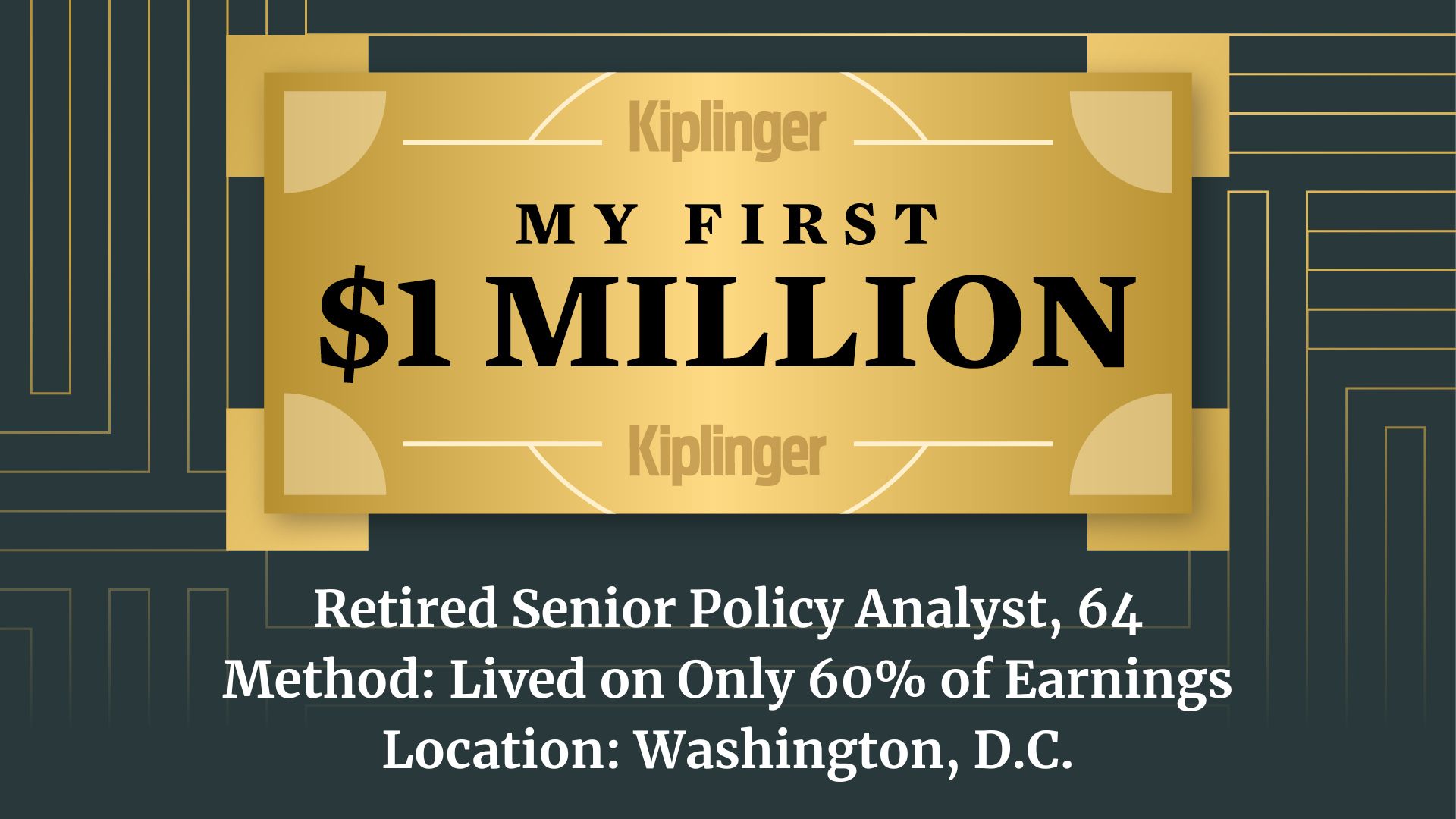My First $1 Million: Retiree, 63, Chicago Metro Area
"Ongoing 401(k) contributions, working with a financial adviser and remaining well diversified has been the strategy all along."


Profit and prosper with the best of Kiplinger's advice on investing, taxes, retirement, personal finance and much more. Delivered daily. Enter your email in the box and click Sign Me Up.
You are now subscribed
Your newsletter sign-up was successful
Want to add more newsletters?
Welcome to Kiplinger's My First $1 Million series, in which we hear from people who have made $1 million. They're sharing how they did it and what they're doing with it. This time, we hear from a 63-year-old retiree in the Chicago metro area who worked in supply chain management for airlines.
See our earlier profiles, including a writer in New England, a literacy interventionist in Colorado, a semiretired entrepreneur in Nashville, an events industry CEO in Northern New Jersey and a retired self-employed attorney on the coast of Washington. (See all of the profiles here.)
Each profile features one person or couple, who will always be completely anonymous to readers, answering questions to help our readers learn from their experience.
From just $107.88 $24.99 for Kiplinger Personal Finance
Become a smarter, better informed investor. Subscribe from just $107.88 $24.99, plus get up to 4 Special Issues

Sign up for Kiplinger’s Free Newsletters
Profit and prosper with the best of expert advice on investing, taxes, retirement, personal finance and more - straight to your e-mail.
Profit and prosper with the best of expert advice - straight to your e-mail.
These features are intended to provide a window into how different people build their savings — they're not intended to provide financial advice.
THE BASICS
How did you make your first $1 million?
I've always been very interested in my personal finances, subscribing over the years to various financial publications to learn about insurance, real estate, mutual funds, stocks, bonds, various specific investment suggestions and paying attention to economic indicators for decisions on appropriate moves to make, etc.

Early in my career, I began socking away money into my 401(k) and never looked back — typically 15%, though sometimes throttling down to 11% or up to 18% to 19%, as household need allowed.
I was lucky enough to marry a woman who respected this and shared my willingness to live below our means, sage advice offered to me by a wise senior manager with whom I worked.
I also benefited from working at a company during a time of explosive growth and profitability, leading to quite generous bonuses for several years early on.

This allowed us to remodel our kitchen and install wooden floors, as well as a few other small luxuries. We both drive our (mostly) used cars for 12 to 13 years, we're not slaves to the latest fashions, and we haven't fallen victim to "needing" the latest electronic or digital whiz-bang gizmo over the years, like so many of our neighbors.
Year by year, our 401(k) (and then Roth 401(k)) grew.
After 30 years, we reached that million-dollar net worth mark, excluding our home value. It felt great, and it offered a sense of assurance that we were well on our way to a secure retirement.
Eight years later, that first million had grown to three through other diversified investments.
What was your salary range?
$75,000 to $115,000.
What did you do once you hit $1 million?
We continued to contribute to our 401(k) and to our many investments. With several more years to work — until I'd qualify for airline retiree flight benefits — we relaxed just a bit and felt more comfortable helping the kids with expenses they had starting up and donating to the church and others.

Since retiring three years ago, we've traveled with friends both domestically and abroad several times in relative luxury.
THE FUN STUFF
Did you do anything to celebrate?
We never really celebrated or did anything special at the million-dollar mark.
What is the best part of making $1 million?
Early in my career, a million dollars seemed like a lot of money, but of course now it really isn't all that much of a milestone.
The best part is in knowing that you'll probably be all right financially the rest of your life (with Social Security) and that you don't have to fret as much as you might have otherwise.
Also, that you can splurge a little like you've not allowed yourself to for so many years.
Did your life change?
I really can't say that it did. We continued to live below our means and still don't live extravagantly.
Did you retire early?
Yes, I was able to retire at 61, and I plan to hold out applying for Social Security until I've maxed out that benefit.
LOOKING BACK
Anything you would do differently?
Not much. Continuing to make ongoing 401(k) and other investment contributions, working with a financial adviser and remaining well diversified has been the strategy all along.
There was one thing we didn't play right, and I wish I'd been more insistent at the time. When the dot-com bubble burst, a very aggressive portion of our portfolio dove significantly, and my wife panicked.
No amount of logical explanation could talk her off the edge of the cliff.

I tried over and over to explain that these things happen and that this account would "revert to the mean" over the coming months, but her emotions just got the best of her, and she demanded that we sell out to not incur any more losses.
I acquiesced, against my judgment, for her mental well-being. Of course, that was right at the bottom, and 12 to 14 months later, that account would have climbed back to its former level.
Luckily, we had another 20-plus years for that remaining money to regrow elsewhere. My goal of retiring at 55 had to wait a bit longer.
Did you work with a financial adviser?
Yes, we've worked with financial advisers with Ameriprise for a couple of decades. It's not a one-way street, and he has listened to many of my suggestions and investment ideas over the years (from my reading) and has adopted some of them for his own and other clients' portfolios.
Did anyone help you early on?
Yes, a fellow analyst in my very early days offered the suggestion of allowing myself to keep (and spend) half of my first salary increase and to put the other half into my 401(k).
I closely followed that for many years. If you never let yourself have it, you won't miss it.
As mentioned earlier, an older senior manager gave the advice to always live below your means and save and invest the difference. I've definitely done that, too.
LOOKING AHEAD
Plans for your next $1 million?
Being retired and drawing monies down now, I'm not likely to accrue another million. (We'll see how Nvidia (NVDA) performs — ha ha.)
Any advice for others trying to make their first $1 million?
Live below your means. That doesn't mean sacrifice — it only means don't live extravagantly.
Put your savings and investments on autopilot through payroll deductions so you never "miss" that money.
Be patient and allow the wonder of compounding to do its work for you.

Do you have an estate plan?
Yes, several years ago, we sat with an attorney and built a very comprehensive estate plan with revocable trusts for myself and my wife, powers of attorney for everything, etc.
I saw how my father had attempted to do all this by himself, but never really finished, so his estate was all over the place when he had to enter a nursing home.
My sister and I were left to pick up the pieces and start all over for him from scratch (with an attorney). I didn't want to leave my kids with something like that.
What do you wish you'd known …
When you first started saving? I think I had a pretty good handle on that, too. I tended toward pretty aggressive vehicles in my 401(k) early on, knowing I had plenty of time to weather some lean years.

I tried to keep those contributions above 15%, plus the company's contributions, which varied over the years.
When you first started investing? Because of my hobbylike interest in all things financial and investing, I think I had a pretty good knowledge base, even starting out.
When you first started working with a financial professional? Having been passed from one to another, as advisers come and go, I've seen how much variation there is in the true knowledge and independent engagement some of them have, even within the same umbrella company.
There've been a few times that I've felt that they might do a little more of their own homework and not just parrot the company line. Generally, the relationships have been very beneficial for us.
Before you retired? I think I was pretty well prepared and had the finance piece figured out pretty well.
If anything, I never imagined how busy I'd be in retirement. I remember my father saying the same thing, "I don't know how I ever had enough time to work."
If you have made $1 million or more and would like to be anonymously featured in a future My First $1 Million profile, please fill out and submit this Google Form or send an email to MyFirstMillion@futurenet.com to receive the questions. We welcome all stories that add up to $1 million or more in your accounts, although we will use discretion in which stories we choose to publish, to ensure we share a diversity of experiences. We also might want to verify that you really do have $1 million. Your answers may be edited for clarity.
RELATED CONTENT
- You're 62 Years Old With $1 Million Saved: Can You Retire?
- Want to Earn $1 Million More Over Your Lifetime? Do This
- Do You Have at Least $1 Million in Tax-Deferred Investments?
- Are You Rich? U.S. Net Worth Percentiles Can Provide Answers
- Compare Your Net Worth by Age
Profit and prosper with the best of Kiplinger's advice on investing, taxes, retirement, personal finance and much more. Delivered daily. Enter your email in the box and click Sign Me Up.

As Contributed Content Editor for the Adviser Intel channel on Kiplinger.com, Joyce edits articles from hundreds of financial experts about retirement planning strategies, including estate planning, taxes, personal finance, investing, charitable giving and more. She has more than 30 years of editing experience in business and features news, including 15 years in the Money section at USA Today.
-
 Thinking of Switching Phone Carriers? Do These 8 Things First
Thinking of Switching Phone Carriers? Do These 8 Things FirstSwitching carriers is easier than ever, but overlooking the fine print could cost you. Here’s what to check before you make the move.
-
 Samsung Galaxy S26 Ultra: What to Know Before You Upgrade
Samsung Galaxy S26 Ultra: What to Know Before You UpgradeThe Galaxy S26 Ultra brings new features and strong launch deals, but whether it’s worth upgrading depends on what you already own.
-
 Nasdaq Soars Ahead of Nvidia Earnings: Stock Market Today
Nasdaq Soars Ahead of Nvidia Earnings: Stock Market TodayWednesday's risk-on session was sparked by strong gains in tech stocks and several crypto-related names.
-
 What Is an Assumable Mortgage and Could It Save You Thousands?
What Is an Assumable Mortgage and Could It Save You Thousands?With mortgage rates still elevated, taking over a seller’s existing home loan could lower monthly payments — if the numbers work.
-
 Have You Fallen Into the High-Earning Trap? This Is How to Escape
Have You Fallen Into the High-Earning Trap? This Is How to EscapeHigh income is a gift, but it can pull you into higher spending, undisciplined investing and overreliance on future earnings. These actionable steps will help you escape the trap.
-
 I'm a Financial Adviser: These 3 Questions Can Help You Navigate a Noisy Year With Financial Clarity
I'm a Financial Adviser: These 3 Questions Can Help You Navigate a Noisy Year With Financial ClarityThe key is to resist focusing only on the markets. Instead, when making financial decisions, think about your values and what matters the most to you.
-
 Where Olympians Store Their Medals is a Great Lesson For Your Valuables and Cash
Where Olympians Store Their Medals is a Great Lesson For Your Valuables and CashWhat you can learn about protecting your cash and values from where Olympians store their medals.
-
 An Executive's 'Idiotic' Idea: Skip Safety Class and Commit a Federal Crime
An Executive's 'Idiotic' Idea: Skip Safety Class and Commit a Federal CrimeSeveral medical professionals reached out to say that one of their bosses suggested committing a crime to fulfill OSHA requirements. What's an employee to do?
-
 How You Can Use the Financial Resource Built Into Your Home to Help With Your Long-Term Goals
How You Can Use the Financial Resource Built Into Your Home to Help With Your Long-Term GoalsHomeowners are increasingly using their home equity, through products like HELOCs and home equity loans, as a financial resource for managing debt, funding renovations and more.
-
 How to Find Free Money for Graduate School as Federal Loans Tighten in 2026
How to Find Free Money for Graduate School as Federal Loans Tighten in 2026Starting July 1, federal borrowing will be capped for new graduate students, making scholarships and other forms of "free money" vital. Here's what to know.
-
 My First $1 Million: Retired Senior Policy Analyst, 64, Washington, D.C.
My First $1 Million: Retired Senior Policy Analyst, 64, Washington, D.C.Ever wonder how someone who's made a million dollars or more did it? Kiplinger's My First $1 Million series uncovers the answers.